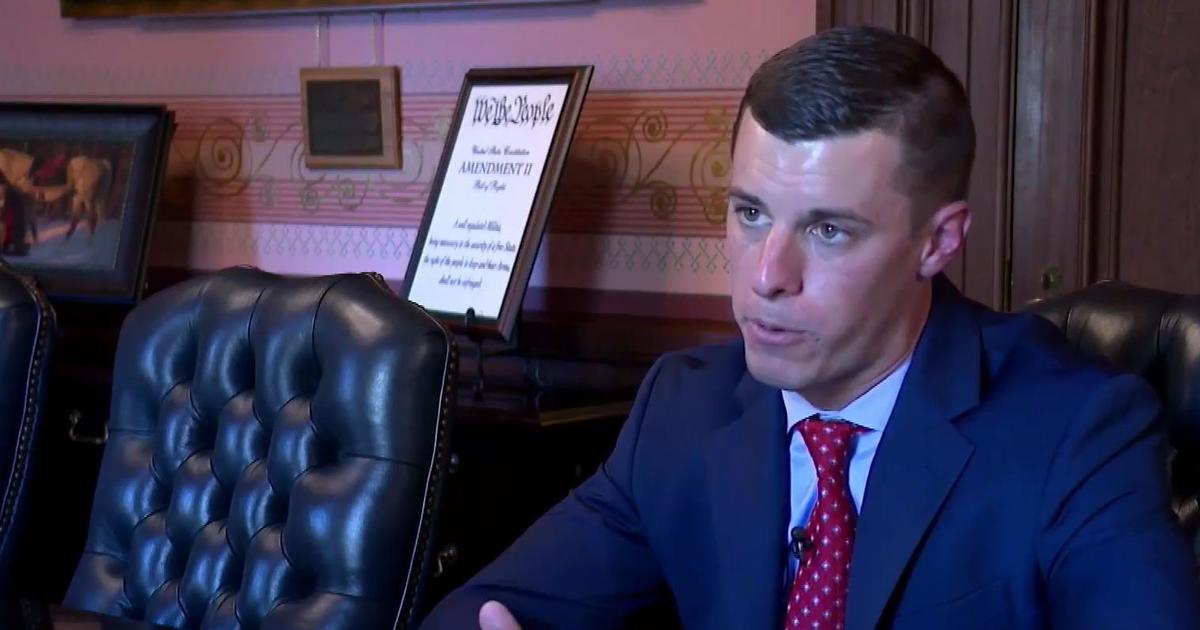Committee Wants US Marshals To 'Hunt Down' Darnell Earley, Force Testimony In Flint Water Crisis
LANSING (WWJ/AP) - If a manhunt is what it takes to get the truth out about the Flint water crisis, then so be it. That's the word from the U.S. House Committee on Oversight and Government Reform, which is investigating the city's lead contamination crisis.
Jason Chaffetz, committee chair, said Wednesday during the first hearing on Capitol Hill that Darnell Earley, who was state-appointed emergency manager for Flint when its water source was switched, has refused to testify in the case.
"On Tuesday, I issued a subpoena," he said. "Normally these are done electronically with a council of record. His attorney refused service."
Chaffetz is now asking a higher power to step in and force Earley to give a deposition, testimony under oath, sometime before the end of the month.
"We're calling on the U.S. Marshalls to hunt him down and give him that subpoena," said Chaffetz.
If Earley refuses to testify, he could face up to a year in federal prison, according to Legal Analyst Charlie Langton.
"It is unusual because most of the time you just take a subpoena, you know you have to testify and you just go and testify. But for whatever reason, Earley's not cooperating," said Langton. "I can't imagine why he wouldn't do this. If I was representing him, I would say 'Mr. Early, you get your you know what down to that congressional testimony and say what you know.'"
Flint switched its water source from Detroit's water system to the Flint River in 2014 to save money while under state financial management. The river water was not treated properly and lead from pipes leached into Flint homes.
Testimony throughout the trial is likely to focus on a June 2015 memo by an employee in EPA's Midwest regional office that outlined problems with Flint's water. The memo was not formally delivered to state environmental officials until November — after the state had begun taking actions to address the lead problem, said Keith Creagh, director of the Michigan Department of Environmental Quality.
"Legitimate concerns raised by EPA's own expert staff were not elevated or provided to either the city or the state for review and action until after the state's response was well underway," Creagh said.
While immediate treatment of the water was not required after lead was first discovered in January 2015, "corrosion treatment should have been required by the MDEQ," said Creagh, who took over as head of the state agency last month following the resignation of Dan Wyant.
Earley, who is currently the Detroit schools emergency manager, had been asked to testify at Wednesday's hearing but declined. The oversight hearing comes as the FBI said it is working with a multi-agency team investigating the lead contamination in Flint.
FBI spokeswoman Jill Washburn said the agency is "investigating the matter to determine if there have been any federal violations." Officials haven't said whether criminal or civil charges might follow the investigation.
Several local, state and federal officials have resigned since doctors revealed last year that using the Flint River for the city's drinking water supply caused elevated levels of lead in some children's blood. Lead contamination has been linked to learning disabilities and other problems. Michigan's governor has apologized repeatedly for the state's role.
In addition to the FBI and the EPA, the federal team includes the U.S. Postal Inspection Service, said Gina Balaya, a U.S. attorney's spokeswoman in Detroit.
In November, the EPA announced it was auditing how Michigan enforces drinking water rules and said it would identify how to strengthen state oversight. The U.S. attorney's office in Detroit said in January that it was investigating the water crisis with the EPA.
An independent panel appointed by Michigan Gov. Rick Snyder has determined that the state Department of Environmental Quality was primarily responsible for the water contamination. The Michigan Civil Rights Commission also plans to hold hearings to explore whether the civil rights of Flint residents were violated.
On Tuesday, Flint Mayor Karen Weaver told reporters she wants lead pipes removed from the city's water distribution system as soon as possible. Weaver proposed starting the pipe-removal process at the "highest-risk homes of kids under 6 and pregnant women."
TM and © Copyright 2016 CBS Radio Inc. and its relevant subsidiaries. CBS RADIO and EYE Logo TM and Copyright 2016 CBS Broadcasting Inc. Used under license. All Rights Reserved. This material may not be published, broadcast, rewritten, or redistributed. The Associated Press contributed to this report.



